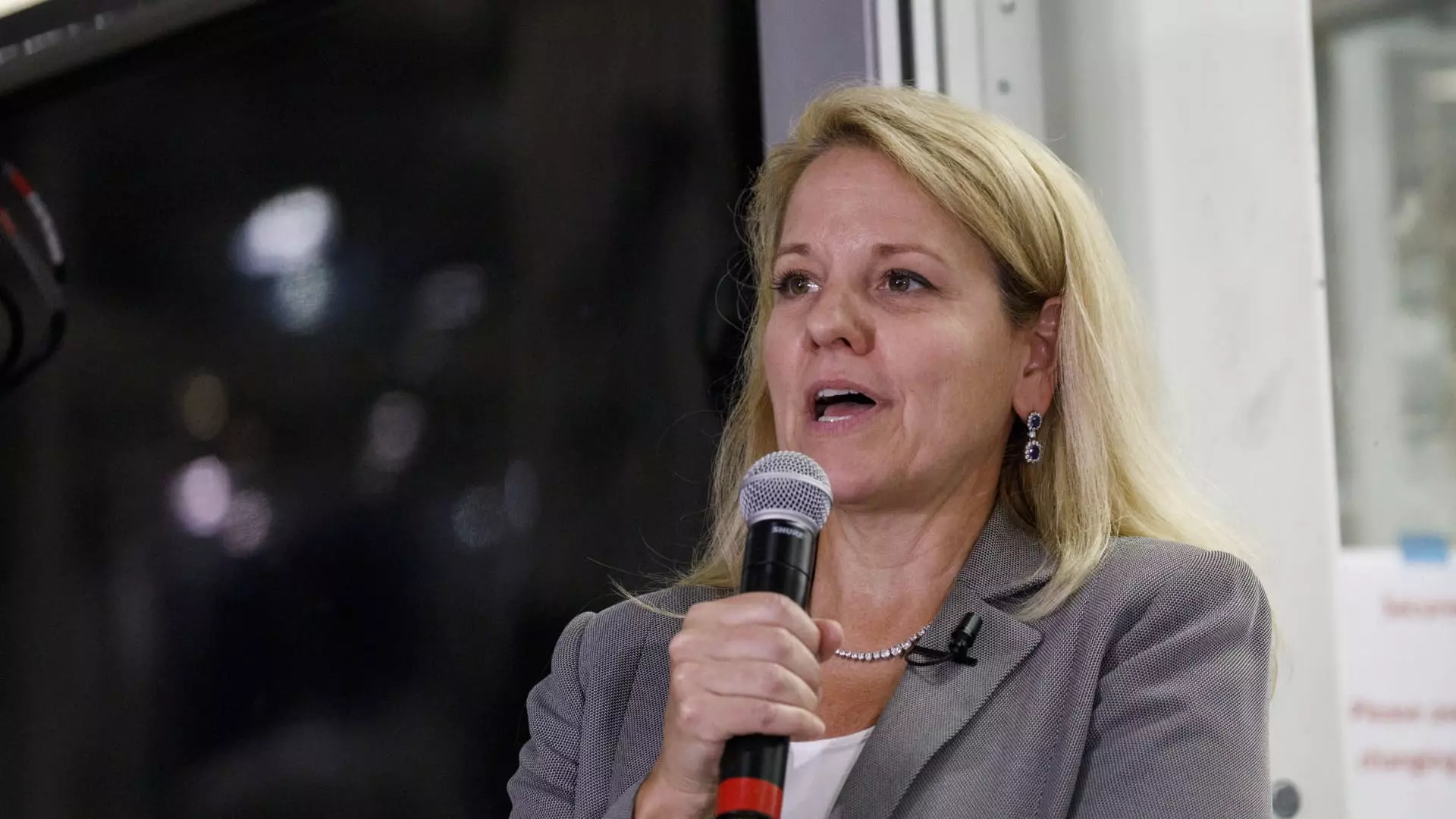The realm of space exploration is rapidly evolving, with emerging players and established titans vying for dominance. Recently, Gwynne Shotwell, President and COO of SpaceX, shared her insights on the state of the industry, particularly emphasizing the importance of competition. Her comments at the 2024 Baron Investment Conference in New York served as a rallying cry not only for SpaceX but for the entire space sector.
In her address, Shotwell highlighted competition as a healthy and necessary force within the aerospace industry. She expressed a desire for rival companies to “catch up,” suggesting that fierce rivalries push companies to innovate and refine their tasks. This indicates a self-assured posture from SpaceX, which has overwhelmingly dominated the global launch market due to its semi-reusable Falcon rockets, achieving over 100 launches this year alone. This performance starkly contrasts with its nearest U.S. competitor, Rocket Lab, which has only executed 12 launches in the same period. The pronounced gap underscores SpaceX’s current industry leadership and sets a high bar for newcomers.
Shotwell’s remarks suggest a keen awareness that competition not only drives SpaceX forward but also benefits the entire sector by fostering innovation and stimulating growth. As a company that has secured billions in government contracts, including exclusive contracts with NASA for transporting astronauts, SpaceX understands that an industry with diverse players is less susceptible to stagnation.
SpaceX’s aspirations extend beyond rocket launches, venturing into the satellite broadband market with its Starlink initiative. Shotwell emphasized Starlink’s burgeoning significance, which now serves nearly 5 million customers and poses considerable challenges to traditional telecommunications companies. The addition of enterprise-focused offerings like those in aviation and maritime sectors demonstrates Starlink’s flexibility and breadth.
However, Shotwell acknowledged the enormous potential of the satellite broadband market, stating that many millions of people remain unserved. With robust competition from companies such as Eutelsat’s OneWeb and Amazon’s Project Kuiper entering the fray, the pathway to dominating the satellite communications market is fraught with challenges. Nevertheless, this competition could ultimately enrich the consumer experience, leading to better service and pricing structures.
A significant focal point of Shotwell’s presentation was SpaceX’s ongoing development of the Starship rocket, which she described as set to revolutionize space travel. Designed as a fully reusable system, Starship promises to extend beyond the capabilities of the Falcon 9 and Dragon capsule, with implications for reducing costs and increasing comfort for future travelers. Shotwell assured audiences that while ongoing flights of the Falcon 9 and Dragon would continue for several more years, Starship would ultimately be the mainstay of SpaceX’s launch operations.
Recent successes in testing, including the catching of Starship’s booster in a landmark maneuver, signify substantial advancements. SpaceX’s ambitions for Starship are not just about showcasing technological prowess; they aim to redefine how humans approach space travel. With Shotwell’s assertion that 400 Starship launches could occur within the next four years, the company’s drive toward achieving a new standard in space logistics becomes evident.
Turning to broader implications, Shotwell conveyed a vision that included addressing the connectivity gap affecting nearly 30% of the global population lacking access to broadband. In her discussion with billionaire investor Ron Baron, she underscored SpaceX’s mission to bridge this divide. While acknowledging the competitive landscape, she remained optimistic about the capacity for multiple entities to thrive within the same space industry.
SpaceX’s ambitions extend beyond mere profitability; they encompass a vision for connectivity and accessibility. By positioning itself as a key player in ensuring that no person is left without internet access, SpaceX aspires to foster a more interconnected world.
Gwynne Shotwell’s insights at the Baron Investment Conference encapsulate the complexities and competitive dynamics of the aerospace industry. As SpaceX continues to forge ahead with its innovative technologies and expanding satellite services, the evolving landscape offers opportunities for collaboration and growth. The competitive spirit, as Shotwell aptly noted, will not only drive SpaceX to enhance its endeavors but also contribute to a richer and more diverse global space economy. The future of space exploration looks promising, with collaboration and competition harmonizing to propel advancements beyond our current imaginations.

